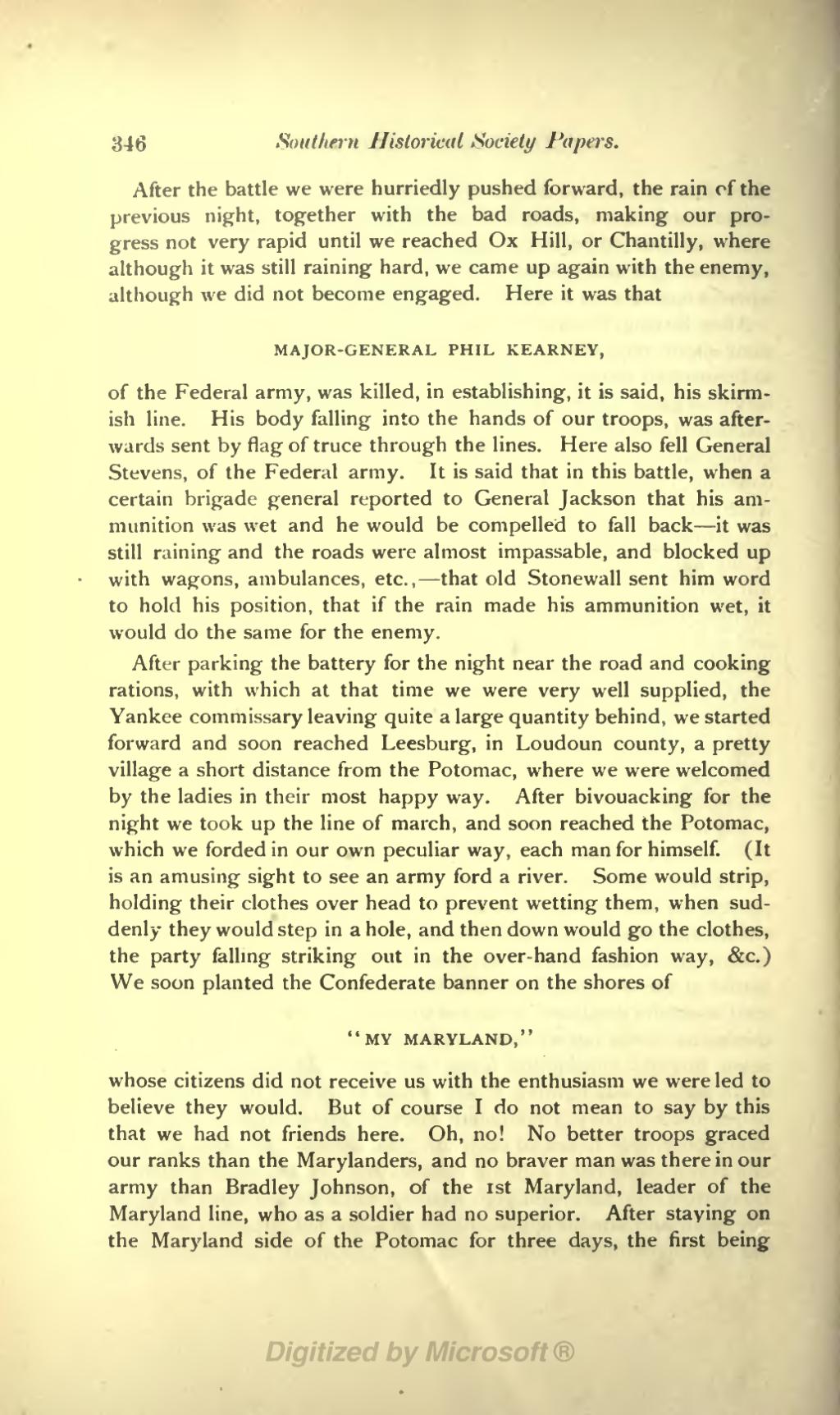346 Southern JJistoricai Society Papers.
After the battle we were hurriedly pushed forward, the rain of the previous night, together with the bad roads, making our pro- gress not very rapid until we reached Ox Hill, or Chantilly, where although it was still raining hard, we came up again with the enemy, although we did not become engaged. Here it was that
MAJOR-GENERAL PHIL KEARNEY,
of the Federal army, was killed, in establishing, it is said, his skirm- ish line. His body falling into the hands of our troops, was after- wards sent by flag of truce through the lines. Here also fell General Stevens, of the Federal army. It is said that in this battle, when a certain brigade general reported to General Jackson that his am- munition was wet and he would be compelled to fall back it was still raining and the roads were almost impassable, and blocked up with wagons, ambulances, etc., that old Stonewall sent him word to hold his position, that if the rain made his ammunition wet, it would do the same for the enemy.
After parking the battery for the night near the road and cooking rations, with which at that time we were very well supplied, the Yankee commissary leaving quite a large quantity behind, we started forward and soon reached Leesburg, in Loudoun county, a pretty village a short distance from the Potomac, where we were welcomed by the ladies in their most happy way. After bivouacking for the night we took up the line of march, and soon reached the Potomac, which we forded in our own peculiar way, each man for himself. (It is an amusing sight to see an army ford a river. Some would strip, holding their clothes over head to prevent wetting them, when sud- denly they would step in a hole, and then down would go the clothes, the party falling striking out in the over-hand fashion way, &c.) We soon planted the Confederate banner on the shores of
"MY MARYLAND,"
whose citizens did not receive us with the enthusiasm we were led to believe they would. But of course I do not mean to say by this that we had not friends here. Oh, no! No better troops graced our ranks than the Marylanders, and no braver man was there in our army than Bradley Johnson, of the ist Maryland, leader of the Maryland line, who as a soldier had no superior. After staying on the Maryland side of the Potomac for three days, the first being
